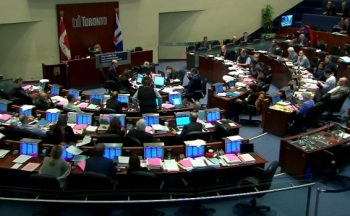 June 2022
June 2022
The popularity of short-term rentals, despite any and all controversies, ensures they are here to stay. Condo communities that once sought to fight them are finding it more practical to adapt.
Investor-owners purchasing condo properties for the purpose of renting them to others are allowed to do so unless prohibited in the declaration. They are reluctant to give up this right to earn what can be a lucrative income despite operating what is essentially an unlicensed and unregulated hotel in a residential community. Communities are concerned about short-term rentals for reasons that include safety, wear and tear on common areas, and resident discomfort.
Condominium corporations look to their declaration for determining how they handle short-term rentals.
When a condominium declaration permits short-term rentals, prohibiting them requires amendment of the declaration. Amendments require that 80 percent of unit owners support the change. This is difficult to achieve without support from investor-owners who are reluctant to relinquish this right.
When a condominium declaration is silent about short-term rentals the corporation can enact rules to regulate them. Such rules may include:
- Entering into an agreement with the corporation and providing written proof of insurance coverage for short-term rentals prior to making a unit available for this purpose
- Providing names and addresses of short-term tenants prior to their arrival
- Prohibiting use of amenities by short-term tenants
- Purchase of a limited-use key fob for use by short-term tenants and prohibiting their use of any other key fob
- Prohibiting use of concierge/security for picking up or dropping off keys or fobs
 When a condominium declaration prohibits short-term rentals, the corporation has an enforcement obligation. Ignoring or allowing short-term rentals is not an option. Communities should communicate this to residents and direct them to report suspected short-term rentals to security or management. Security should be preventing unregistered individuals with suitcases from gaining access to the building. Management can choose to deactivate key fobs for units providing them to unregistered individuals. For units where short-term rentals are being advertised, owners should be informed they are in contravention of their declaration, and that cost of enforcement can be charged back to them. Communities can create and enforce rules limiting key fob access to owners and residents. Identification can be requested of unrecognized individuals entering a building.
When a condominium declaration prohibits short-term rentals, the corporation has an enforcement obligation. Ignoring or allowing short-term rentals is not an option. Communities should communicate this to residents and direct them to report suspected short-term rentals to security or management. Security should be preventing unregistered individuals with suitcases from gaining access to the building. Management can choose to deactivate key fobs for units providing them to unregistered individuals. For units where short-term rentals are being advertised, owners should be informed they are in contravention of their declaration, and that cost of enforcement can be charged back to them. Communities can create and enforce rules limiting key fob access to owners and residents. Identification can be requested of unrecognized individuals entering a building.







